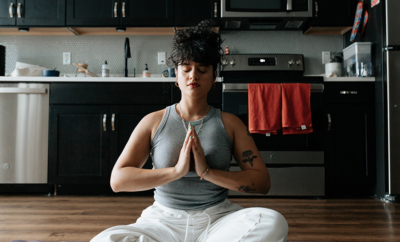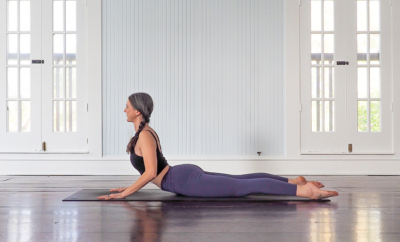Self-Compassion Will Drastically Improve Your Life and Your Relationship (Here’s How)

“Life is difficult.” This well-known first sentence of Scott Peck’s classic book, The Road Less Travelled, shares a profound truth about the journey we all take from birth to death.
Of course, life is many other wonderful things as well. But at some point we do all face challenges, disappointment, grief, anxiety, uncertainty and numerous other emotional tests of strength and resilience.
Often, emotional tests arrive in the form of shame.
The Burden of Shame
Our Western culture greatly values personal, social and economic success, and emphasizes the importance of self-esteem as a key trait to ensure this success.
Self-esteem is about our sense of self-worth and value. And though it can definitely impact our goals and expectations, it is not always enough to counteract some of the difficulties that life throws our way.
Our culture also tends to emphasize the importance of standing out, coming first and feeling special. But what happens when this is not our experience? How do we cope with missing the bar or being just “average” when this is often considered intolerable or possibly even failure?
Shame taps into the essence of our being. It is the belief that we are somehow unacceptable, less than, and defective.
At these times we can all too easily find ourselves on the slippery slope of thoughts like: “I’m not good enough, worthy enough, or lovable enough”. Then, this train of thought easily leads to the train wreck of shame.
Unlike embarrassment (which is an uncomfortable reaction to something we have done), shame taps into the essence of our being. It is the belief that we are somehow unacceptable, less than, and defective.
Self-Compassion: The Antidote to Shame
Fortunately, there is an antidote to shame. It comes in the form of self-compassion.
What does this really mean? When someone is struggling with shame, ask them what they would say to a friend in the same situation. Almost always, they respond that they would offer them a more positive and balanced way to look at things, remind them of their strengths, and share a compliment.
Self-compassion allows us to step back, see the big picture, and have an open heart for ourselves.
Generally speaking, they offer them kindness and compassion. Self-compassion is simply doing the same for oneself.
Self-compassion allows us to step back, see the big picture, and have an open heart for ourselves. It reminds us that we are not defined by what we do, or traits that we do or do not possess, and that our imperfection is simply the result of being human. We are able to accept and even appreciate our flaws.
Just as a parent comforts and soothes a sad child, our self-compassion offers us a container for our feelings and allows us to self-soothe, tolerate distress, heal, and repair.
When we are coming from love, we are able to take deep breaths, challenge our shaming thoughts, and replace them with caring, accepting, and encouraging ones.
Self-Compassion and Relationships
The ability to be self-compassionate and self-soothing benefits us greatly in our relationships as well. When we practice self-compassion, we are teaching ourselves how to offer our partner compassion as well.
When our partner shares a complaint, having self-compassion will keep us from personalizing everything, and allow us to be present and truly hear them.
“Compassionate couples” have a great awareness of each other’s pain and challenges, and a deep desire to help relieve this pain. These couples treat each other with respect, and value their relationship as a place for honesty and caring.
During conflicts, they are able to soften the energy and soothe each other with caring smiles, gentle touches, and the reminder that they love each other. They are more able to accept some influence, compromise, and respect each other’s point of view. All of this strengthens their love and connection.
Loving ourselves as imperfect humans allows us to stay present and mindful, and respond without defensiveness or hostility.
Ideally, we are able to look beneath the surface of our words and experiences in order to truly connect with the essence of who we are. In a perfect world, we are able to do the same for our partners.
We can share compassion and what is called “unconditional positive regard,” which allows our partner to be vulnerable and share their authentic self – insecurities, fears, dreams, and all.
Compassionate couples are able to get out of their own way, resist the need to be “right,” and truly see their partner as another vulnerable, imperfect human being, equally as deserving of love and respect.
Put It Into Practice: Self-Compassion and Relationships
Use these simple mantras to implement and apply self-compassion and couple compassion in your everyday life when different scenarios pop up.
When Suffering Arises:
Recite the following statement to become a more self-compassionate person, compassionate couple, and compassionate family: “There will be moments of suffering. Suffering is a part of life and relationships. May I be kind to myself and others in those moments.”
When You Feel Critical:
The next time you notice yourself being critical of yourself or others ask: “If I were coming from an unconditionally loving place, what would I say right now?”
When You Need a Kindness Reminder:
And finally, carry this beautiful sentiment from the Dalai Lama with you at all times: “Be kind whenever possible. It is always possible.”
Want more inspiring quotes? Check out these 15 Quotes to Help You Live More Passionately
The Takeaway on Self-Compassion and Relationships
In our modern world, self-compassion is no easy feat. But it is important to implement in our daily lives for our own health and wellbeing.
When we are able to transfer this self-compassion to our relationships, they can blossom and flourish in infinite ways.
The first step? Recognize, embrace, and love your own humanity. The rest will follow.


This Month's Letter
From the Editor
Monthly motivation and food for
thought from our founder.































Comments